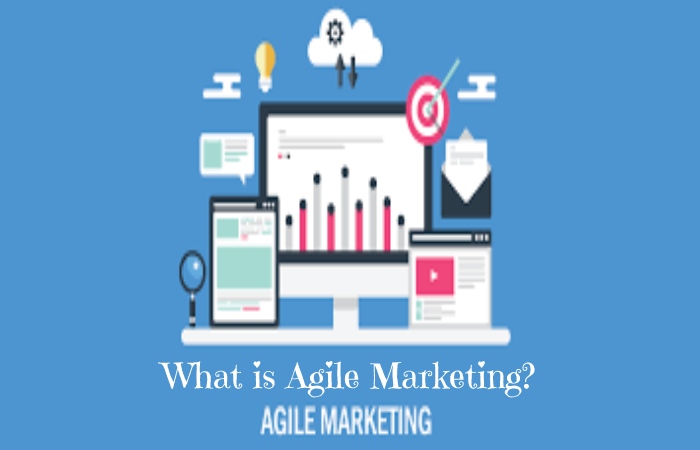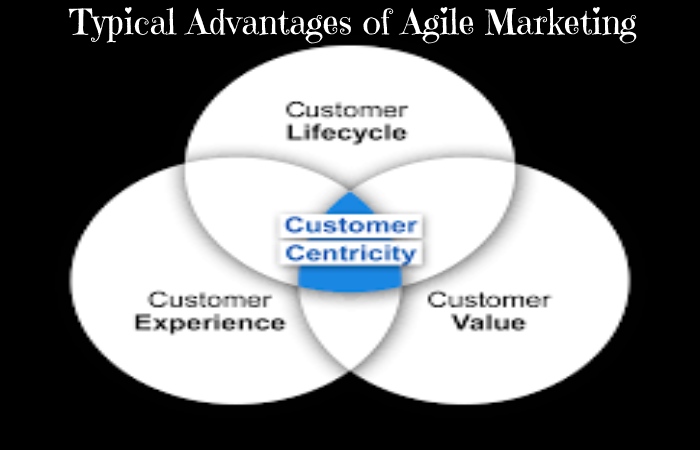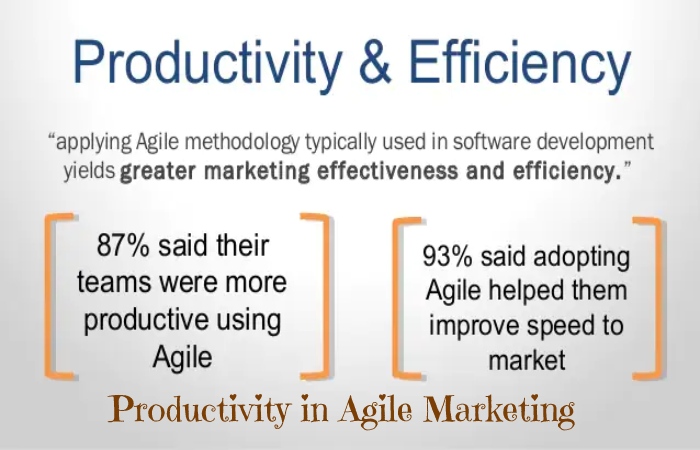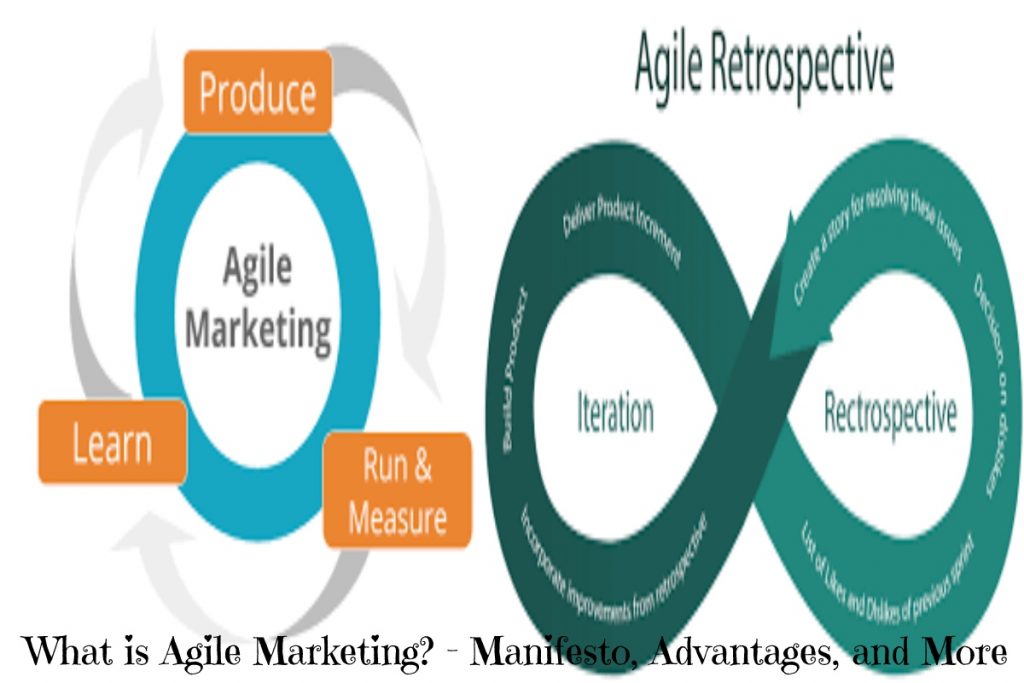What is Agile Marketing?
Agile marketing is a marketing strategy in which teams work in short cycles to complete well-defined projects and measure their impact to improve results over time continually. And also, the agile approach emphasizes focusing on the customer and reacting to changes based on evidence and data rather than following a determined plan.
However, Agile marketing motivates the agile software movement that began in 2001 when a group of thought leaders called the Agile Alliance met to discuss alternatives to traditional cascading software development processes (requiring requirements, design, coding, and also tests) in a linear order earlier a product can go on the market).

Manifesto Agile Marketing
- Validated learning about opinions and conventions
- Customer-oriented cooperation through silos and hierarchies
- Adaptive and reiterative campaigns versus Big Bang campaigns
- The customer discovery process versus static prediction
- Flexible planning instead of rigid planning
- Respond to format change according to plan
- And also, lots of little experiments on some big bets.
Typical Advantages of Agile Marketing
1. Customer-Centric:

Agile marketing sets the voice of the customer at the heart of all businesses, creating a customer-centricity that many organizations strive to achieve.
2. Effectiveness:
And also, it is built on constant measurement, allowing marketers to track business impact and dedicate resources to campaigns that deliver the best performance. However, this continuous improvement process generates ongoing efficiency gains.
3. Collaboration:
You can transform the culture, not just the process. And also, Agile marketing values the individual in the context of the team and encourages empowerment, collaboration, and thoughtful risk-taking.
4. Productivity:

Agile marketing needs people to work in small cross-functional teams proficiently to make decisions based on an agreed strategy. Furthermore, “People are gladder, more efficient, and more productive, which is great for the business owner.
5. Speed and Flexibility:
Speed is a crucial benefit of agile marketing. Working on priority activities, in short, fast cycles with fewer distractions enables companies to get their work to market faster and react more quickly to market changes.
“People are happier, more efficient, and additional products, which is excessive for the business owner.”
6. Alignment:
Agile marketing requires even contact with other departments, such as sales or product, through planning and arranging sprints, which means that marketing better aligns with your needs.
Progress:
Agile teams can show slides, better prioritization, measurable results, adaptability to change, customer satisfaction, and increased competitiveness, which only means good things for the marketer’s career.
More Advantages
In their influential study of the CMO agenda on agile marketers, CMG Partners quantified the benefits:
- Nine out of 10 Agile Marketers (93%) say it helps them improve their speed to market while the same proportion of Agile marketers (93%) say it allows them to change faster and more effectively.
- Almost as many (87%) say that adopting Agile will make their marketing team more productive.
- And also, four out of five marketers (80%) say that the summary of Agile leads to better prioritization of the things that matter.
- The exact number (80%) say that adopting helps them deliver a better and more relevant end product.
- And also, it is one of seven new skills marketing teams must master to avoid falling behind their competitors –
- Research has shown that agile companies increase their sales 37% faster and generate 30% higher profits than non-agile companies.
- Two in three marketing managers (67%) say that agile results translate into a more motivated team.

